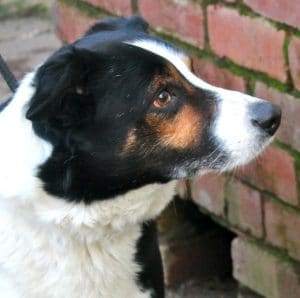Sanctuary Life
How well do microchips work
 We check every dog or cat brought in to us to see if her or she has a microchip. It’s compulsory for dogs to be chipped, not so for cats. However, sometimes we can’t find the chip in the usual place, the back of the neck. It’s not safe to assume that the dog hasn’t been chipped because occasionally the implant moves. We have several dogs in at present where their chip is in another part of the body, down a front leg in one case.
We check every dog or cat brought in to us to see if her or she has a microchip. It’s compulsory for dogs to be chipped, not so for cats. However, sometimes we can’t find the chip in the usual place, the back of the neck. It’s not safe to assume that the dog hasn’t been chipped because occasionally the implant moves. We have several dogs in at present where their chip is in another part of the body, down a front leg in one case.
Sometimes we get dogs in with two microchips, a recent arrival had one in the neck and another along further his back. His previous carers thought he wasn’t chipped and had a new one put in. It was very confusing and took some sorting out. We don’t know ho to stop this happening and so far, haven’t met anyone who does. It makes sense to run the chip scanner all over the pet’s body just in case though.
Some elderly or frail dogs might not be chipped because they have been exempted, because of their condition usually. If their skin is thin or they are poorly, it’s just one ordeal too many and the vet can authorise an exemption certificate.
Another potential problem is in recovering your pet when he or she has been found. Did you know that the microchipping company won’t give you the details of the new keeper if they don’t give their permission. This is down to the Data Protection Act, which should surely be modified to cover this eventuality. A family who lost their cat two years ago still don’t know where is, even though the chip company know. The people who found the cat want to keep him and applied to have the chip transferred. This can ‘t happen because he isn’t their cat. The original owners (who were overjoyed to learn that he had been found safely) can’t get him back because they can’t get to know where he is or who has him.
It’s only when pets are stolen that the police are involved and the people who are keeping the pet can be compelled to give out their address. Getting the cat or dog back to his rightful owner should be priority but it seems that there is nothing to be done without the finder’s co-operation.

